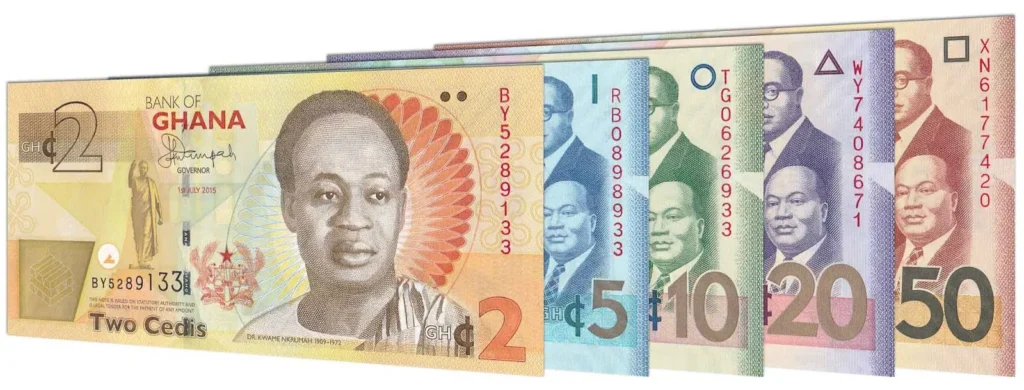
The Bank of Ghana (BoG) is urging businesses and individuals to prioritize the Ghanaian cedi for all domestic transactions, as part of efforts to stabilize the currency and reduce dependence on foreign exchange. This message was reinforced by Acting Governor Dr. Johnson Asiama during the 9th Ghana CEO Summit held in Accra.
According to Dr. Asiama, the cedi is Ghana’s sole legal tender and should be used exclusively in local commerce. He warned that the increasing use of foreign currencies, particularly the U.S. dollar, places strain on Ghana’s forex reserves and contributes to exchange rate instability.
He stressed the need for broader use of the cedi across sectors to enhance monetary control and safeguard the nation’s financial system. “Promoting the cedi in all transactions will help strengthen demand and reduce pressure on the exchange rate,” he explained.
In addition, the BoG is working with institutions such as the Ministry of Finance, the Ghana Stock Exchange, and the State Interests and Governance Authority (SIGA) to rejuvenate the domestic capital market. This initiative aims to transition from reliance on short-term borrowing to more sustainable long-term funding sources. Dr. Asiama noted that such measures are essential for creating a more resilient and self-reliant economy.
The central bank also revealed plans to introduce regulatory measures for cryptocurrency activity in the country. With the rapid growth of digital assets—now held by an estimated 17% of the population, especially among youth and female entrepreneurs—BoG sees a need to ensure that these innovations do not undermine financial stability or the value of the cedi. “We must ensure that digital finance evolves in a way that protects consumers and the national currency,” Dr. Asiama said.
While the BoG’s initiatives are seen as a step toward greater economic stability, experts believe success will depend on reducing dollar-denominated transactions in critical sectors like real estate and retail. Ghana’s approach reflects a broader trend in Africa where central banks are reinforcing monetary sovereignty in response to digital disruption and global financial pressures.
FAQs: Bank of Ghana’s Push for Cedi Usage in Local Transactions
1. Why is the Bank of Ghana encouraging the use of the cedi for local transactions?
The BoG aims to reduce the country’s reliance on foreign currencies like the U.S. dollar, which strain Ghana’s forex reserves and contribute to exchange rate volatility. Promoting the cedi supports currency stability and economic sovereignty.
2. Is it illegal to use the U.S. dollar in Ghana?
Yes, the cedi is Ghana’s only legal tender. While some businesses have informally accepted foreign currencies, the BoG insists that all domestic transactions must be conducted in cedis.
3. What impact does dollarization have on the economy?
Dollarization undermines the local currency, increases demand for foreign exchange, and makes the economy more vulnerable to external shocks. It also weakens the central bank’s ability to control inflation and interest rates.
4. What steps is the BoG taking to support the economy beyond promoting the cedi?
The BoG is collaborating with institutions like the Ministry of Finance and the Ghana Stock Exchange to boost long-term investment and reduce dependence on short-term borrowing, thereby strengthening economic resilience.
5. How is the BoG responding to the rise of cryptocurrency in Ghana?
With about 17% of Ghanaians involved in crypto, particularly youth and women-led businesses, the BoG plans to introduce regulations to protect users and shield the cedi from potential risks linked to digital assets.
6. Who will be affected by this new push for cedi usage?
All individuals and businesses operating in Ghana are expected to comply, especially sectors such as real estate, retail, and tourism, where foreign currency transactions are more common.
7. Is this part of a broader economic strategy?
Yes. The BoG’s initiatives align with regional trends where African central banks are prioritizing their local currencies and financial sovereignty in response to global economic pressures and digital finance growth.





